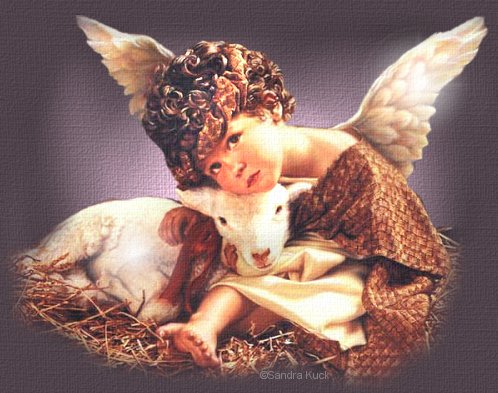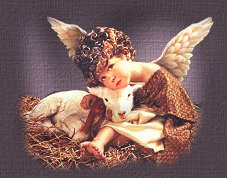



 THE BEGINNING
A guardian
angel o'er his life presiding,
Doubling
his pleasures, and his cares dividing.
Samuel
Rogers, Human Life
It was
just past midnight on December 24, 1983. The Midwest was
shivering
through a record-breaking cold spell, complete with gale-
force
winds and frozen water pipes. And although our suburban Chicago
household
was filled with the snug sounds of a family at rest, I
couldn't
be a part of them, not until our 21-year-old son pulled into
the driveway.
At the moment, Tim and his two room-mates were driving
home for
Christmas, their first trip back since they had moved east
last May.
"Don't worry, Mom," Tim had reassured me over the phone
last night.
"We're
going to leave before dawn tomorrow and drive straight through.
We'll
be fine!"
Kids.
They do insane things. Under normal circumstances, I figured, a
Connecticut-to-
Illinois trek ought to take about eighteen hours. But
the weather
had turned so dangerously cold that radio reports warned
against
venturing outdoors, even for a few moments. And we had heard
nothing
from the travelers. Distressed, I pictured them on a desolate
road.
What if they ran into car problems or lost their way? And if
they had
been delayed, why hadn't Tim phoned? Restlessly I paced, and
prayed
in the familiar shorthand all mothers know: "God, send someone
to help
them."
By now,
as I later learned, the trio had stopped briefly in Fort
Wayne,
Indiana, to deposit Don at his family home. Common sense
suggested
that Tim and Jim stay the rest of the night, and resume
their
trek in the morning. But when does common sense prevail with
invincible
young adults? There were only four driving hours left to
reach
home. And although it was the coldest night in Midwest history,
and the
snowy highways were deserted, the two had started out again.
They had
been traveling for only a few miles on a rural access road to
the Indiana
tollway, when they noticed that the car's engine seemed
sluggish,
lurching erratically and dying to ten or fifteen miles per
hour.
Tim glanced uneasily at Jim. "Do not--" the radio announcer
intoned,
"repeat--do not--venture outside tonight, friends. There's a
record
windchill of eighty below zero, which means that exposed skin
will freeze
in less than a minute." The car surged suddenly, then
coughed
and slowed again.
"Tim,"
Jim spoke into the darkness. "We're not going to stall here,
are we?"
"We can't,"
Tim answered grimly, as he pumped the accelerator. "We'd
die for
sure."
But instead
of picking up speed, the engine sputtered, chugging and
slowing
again. About a mile later, at the top of a small incline, the
car crawled
to a frozen stop.
Horrified,
Tim and Jim looked at each other in the darkened interior.
They could
see across the fields in every direction but, incredibly,
theirs
was the only vehicle in view. For the first time, they faced
the fact
that they were in enormous danger. There was no traffic, no
refuge
ahead, not even a farmhouse light blinking in the distance. It
was as
if they had landed on an alien and snow-covered planet.
And the
appalling, unbelievable cold. Never in Tim's life had he
experienced
anything so intense. They couldn't run for help; he knew
that now
for sure. He and Jim were young and strong, but even if
shelter
was only a short distance away, they couldn't survive. The
temperature
would kill them in a matter of minutes. "Someone will
come along
soon,"
Jim muttered,
looking in every direction. "They're bound to."
"I don't
think so," Tim said. "You heard the radio. Everyone in the
world
is inside tonight---except us."
"Then
what are we going to do?"
"I don't
know." Tim tried starting the engine again, but the ignition
key clicked
hopelessly in the silence. Bone-chilling cold had
penetrated
the car's interior, and his feet were already growing
numb.
Well, God, he prayed, echoing my own distant plea, You're the
only one
who can help us now.
It seemed
impossible to stay awake much longer... Then, as if they had
already
slipped into a dream, they saw headlights flashing at the
car's
left rear. But that was impossible. For they had seen no twin
pinpricks
of light in the distance, no hopeful approach. Where had
the vehicle
come from? Had they already died?
But no.
For, miraculously, someone was knocking on the driver's side
window.
"Need to be pulled?" In disbelief, they heard the muffled
shout.
But it was true. Their rescuer was driving a tow truck.
"Yes,
oh yes, thanks!" Quickly, the two conferred as the driver,
saying
nothing more, drove around to the front of the car and
attached
chains.
If there
were no garages open at this hour, they would ask him to take
them back
to Don's house, where they could spend the rest of the
night.
Swathed
almost completely in a furry parka, hood and a scarf up to his
eyes,
the driver nodded at their request, but said nothing more. He
was calm,
they noted as he climbed into his truck, seemingly
unconcerned
about the life- threatening circumstances in which he had
found
them.
Strange
that he's not curious about us, Tim mused, and isn't even
explaining
where he came from, or how he managed to approach without
our seeing
him... And had there been lettering on the side of the
truck?
Tim hadn't noticed any. He's going to give us a big bill, on a
night
like this... I'll have to borrow some money from Don or his
dad...
But Tim was exhausted from the ordeal, and gradually, as he
leaned
against the seat, his thoughts slipped away.
They passed
two locked service stations, stopped to alert Don from a
pay phone,
and were soon being towed back through the familiar Fort
Wayne
neighborhood. Hushed, Christmas lights long since extinguished
and families
asleep, Don's still seemed the most welcoming street
they had
ever been on. The driver maneuvered carefully around the cul-
de-sac,
and pulled up in front of Don's house. Numb with cold, Tim
and Jim
raced to the side door where Don was waiting, then tumbled
into the
blessedly warm kitchen, safe at last.
Don slammed
the door against the icy blast. "Hey, what happened?" he
began,
but Tim interrupted.
"The tow
truck driver, Don. I have to pay him, and I need to
borrow..."
"Wait
a minute," Don frowned, looking past his friends through the
window.
"I don't see any tow truck out there."
Tim and
Jim turned around. There, parked alone at the curb was Tim's
car. There
had been no sound in the crystal-clear night of its release
from the
chains, no door slam, no chug of an engine pulling away.
There
had been no bill for Tim to pay, no receipt to sign, no
farewell
or "thank you" or "Merry Christmas..." Stunned, Tim raced
back down
the driveway to the curb, but there were no taillights
disappearing
in the distance, no engine noise echoing through the
silent
streets, nothing at all to mark the tow truck's presence.
Then Tim
saw the tire tracks traced in the wind-blown snowdrifts. But
there
was only one set of marks ringing the cul-de-sac curve. And they
belonged
to Tim's car.
When Christmas
carols fill the air, and our worries regress in a
temporary
whirl of holiday nostalgia, everyone believes in angels. But
it's harder
to accept the likelihood that the "multitude of heavenly
host"
on that long-ago Bethlehem hillside has relevance in our lives
too, that
God's promise to send his angels to protect and rescue each
of His
children is a faithful pact, continuing for all eternity,
throughout
every season of the year.
Angels
don't submit to litmus tests, testify in court or slide under a
microscope
for examination. Thus, their existence cannot be "proved"
by the
guidelines we humans usually use. To know one, perhaps,
requires
a willingness to suspend judgment, to open ourselves to
possibilities
we've only dreamed about. "The best and most beautiful
things
in the world cannot be seen or even touched," Helen Keller
said.
"They must be felt with the heart."
Was it
an angel? Our family will never know for sure.
But on
Christmas Eve, l983, I heard the whisper of wings as a tow
truck
driver answered a heavenly summons, and brought our son safely
home.
THE BEGINNING
A guardian
angel o'er his life presiding,
Doubling
his pleasures, and his cares dividing.
Samuel
Rogers, Human Life
It was
just past midnight on December 24, 1983. The Midwest was
shivering
through a record-breaking cold spell, complete with gale-
force
winds and frozen water pipes. And although our suburban Chicago
household
was filled with the snug sounds of a family at rest, I
couldn't
be a part of them, not until our 21-year-old son pulled into
the driveway.
At the moment, Tim and his two room-mates were driving
home for
Christmas, their first trip back since they had moved east
last May.
"Don't worry, Mom," Tim had reassured me over the phone
last night.
"We're
going to leave before dawn tomorrow and drive straight through.
We'll
be fine!"
Kids.
They do insane things. Under normal circumstances, I figured, a
Connecticut-to-
Illinois trek ought to take about eighteen hours. But
the weather
had turned so dangerously cold that radio reports warned
against
venturing outdoors, even for a few moments. And we had heard
nothing
from the travelers. Distressed, I pictured them on a desolate
road.
What if they ran into car problems or lost their way? And if
they had
been delayed, why hadn't Tim phoned? Restlessly I paced, and
prayed
in the familiar shorthand all mothers know: "God, send someone
to help
them."
By now,
as I later learned, the trio had stopped briefly in Fort
Wayne,
Indiana, to deposit Don at his family home. Common sense
suggested
that Tim and Jim stay the rest of the night, and resume
their
trek in the morning. But when does common sense prevail with
invincible
young adults? There were only four driving hours left to
reach
home. And although it was the coldest night in Midwest history,
and the
snowy highways were deserted, the two had started out again.
They had
been traveling for only a few miles on a rural access road to
the Indiana
tollway, when they noticed that the car's engine seemed
sluggish,
lurching erratically and dying to ten or fifteen miles per
hour.
Tim glanced uneasily at Jim. "Do not--" the radio announcer
intoned,
"repeat--do not--venture outside tonight, friends. There's a
record
windchill of eighty below zero, which means that exposed skin
will freeze
in less than a minute." The car surged suddenly, then
coughed
and slowed again.
"Tim,"
Jim spoke into the darkness. "We're not going to stall here,
are we?"
"We can't,"
Tim answered grimly, as he pumped the accelerator. "We'd
die for
sure."
But instead
of picking up speed, the engine sputtered, chugging and
slowing
again. About a mile later, at the top of a small incline, the
car crawled
to a frozen stop.
Horrified,
Tim and Jim looked at each other in the darkened interior.
They could
see across the fields in every direction but, incredibly,
theirs
was the only vehicle in view. For the first time, they faced
the fact
that they were in enormous danger. There was no traffic, no
refuge
ahead, not even a farmhouse light blinking in the distance. It
was as
if they had landed on an alien and snow-covered planet.
And the
appalling, unbelievable cold. Never in Tim's life had he
experienced
anything so intense. They couldn't run for help; he knew
that now
for sure. He and Jim were young and strong, but even if
shelter
was only a short distance away, they couldn't survive. The
temperature
would kill them in a matter of minutes. "Someone will
come along
soon,"
Jim muttered,
looking in every direction. "They're bound to."
"I don't
think so," Tim said. "You heard the radio. Everyone in the
world
is inside tonight---except us."
"Then
what are we going to do?"
"I don't
know." Tim tried starting the engine again, but the ignition
key clicked
hopelessly in the silence. Bone-chilling cold had
penetrated
the car's interior, and his feet were already growing
numb.
Well, God, he prayed, echoing my own distant plea, You're the
only one
who can help us now.
It seemed
impossible to stay awake much longer... Then, as if they had
already
slipped into a dream, they saw headlights flashing at the
car's
left rear. But that was impossible. For they had seen no twin
pinpricks
of light in the distance, no hopeful approach. Where had
the vehicle
come from? Had they already died?
But no.
For, miraculously, someone was knocking on the driver's side
window.
"Need to be pulled?" In disbelief, they heard the muffled
shout.
But it was true. Their rescuer was driving a tow truck.
"Yes,
oh yes, thanks!" Quickly, the two conferred as the driver,
saying
nothing more, drove around to the front of the car and
attached
chains.
If there
were no garages open at this hour, they would ask him to take
them back
to Don's house, where they could spend the rest of the
night.
Swathed
almost completely in a furry parka, hood and a scarf up to his
eyes,
the driver nodded at their request, but said nothing more. He
was calm,
they noted as he climbed into his truck, seemingly
unconcerned
about the life- threatening circumstances in which he had
found
them.
Strange
that he's not curious about us, Tim mused, and isn't even
explaining
where he came from, or how he managed to approach without
our seeing
him... And had there been lettering on the side of the
truck?
Tim hadn't noticed any. He's going to give us a big bill, on a
night
like this... I'll have to borrow some money from Don or his
dad...
But Tim was exhausted from the ordeal, and gradually, as he
leaned
against the seat, his thoughts slipped away.
They passed
two locked service stations, stopped to alert Don from a
pay phone,
and were soon being towed back through the familiar Fort
Wayne
neighborhood. Hushed, Christmas lights long since extinguished
and families
asleep, Don's still seemed the most welcoming street
they had
ever been on. The driver maneuvered carefully around the cul-
de-sac,
and pulled up in front of Don's house. Numb with cold, Tim
and Jim
raced to the side door where Don was waiting, then tumbled
into the
blessedly warm kitchen, safe at last.
Don slammed
the door against the icy blast. "Hey, what happened?" he
began,
but Tim interrupted.
"The tow
truck driver, Don. I have to pay him, and I need to
borrow..."
"Wait
a minute," Don frowned, looking past his friends through the
window.
"I don't see any tow truck out there."
Tim and
Jim turned around. There, parked alone at the curb was Tim's
car. There
had been no sound in the crystal-clear night of its release
from the
chains, no door slam, no chug of an engine pulling away.
There
had been no bill for Tim to pay, no receipt to sign, no
farewell
or "thank you" or "Merry Christmas..." Stunned, Tim raced
back down
the driveway to the curb, but there were no taillights
disappearing
in the distance, no engine noise echoing through the
silent
streets, nothing at all to mark the tow truck's presence.
Then Tim
saw the tire tracks traced in the wind-blown snowdrifts. But
there
was only one set of marks ringing the cul-de-sac curve. And they
belonged
to Tim's car.
When Christmas
carols fill the air, and our worries regress in a
temporary
whirl of holiday nostalgia, everyone believes in angels. But
it's harder
to accept the likelihood that the "multitude of heavenly
host"
on that long-ago Bethlehem hillside has relevance in our lives
too, that
God's promise to send his angels to protect and rescue each
of His
children is a faithful pact, continuing for all eternity,
throughout
every season of the year.
Angels
don't submit to litmus tests, testify in court or slide under a
microscope
for examination. Thus, their existence cannot be "proved"
by the
guidelines we humans usually use. To know one, perhaps,
requires
a willingness to suspend judgment, to open ourselves to
possibilities
we've only dreamed about. "The best and most beautiful
things
in the world cannot be seen or even touched," Helen Keller
said.
"They must be felt with the heart."
Was it
an angel? Our family will never know for sure.
But on
Christmas Eve, l983, I heard the whisper of wings as a tow
truck
driver answered a heavenly summons, and brought our son safely
home.
 Copyright
1992 by Joan Wester Anderson.
Copyright
1992 by Joan Wester Anderson.


 




|
|
|